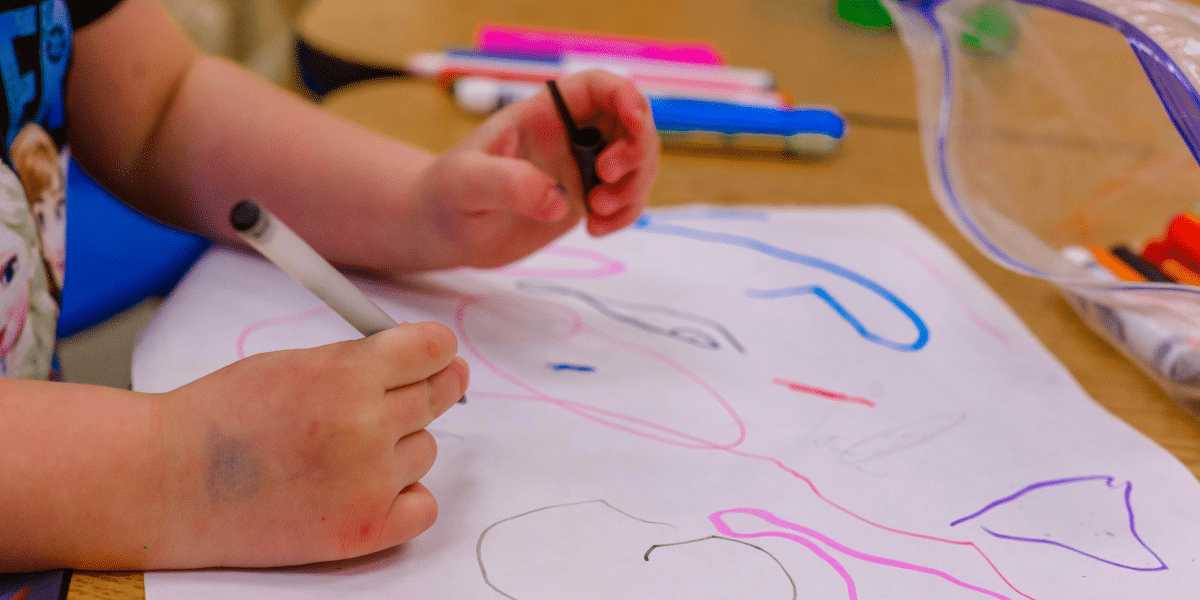By: Maria Williams
Education plays an essential part in shaping the character, perceptions, and values of young, curious minds. Early development years are especially formative, equipping children with skills and knowledge that support their future growth. In this context, the role of preschools (early childhood education) in society is widely recognized as highly influential. COVID-19 reinforced this view, with global school shutdowns highlighting the essential support preschools and childcare provide for both parents and children.
Following this awareness, California introduced pre-K programs to make preschool more accessible by incorporating it into public schools. According to Holly Gold, founder of The Little Schools and an early childhood educator, the state’s decision to fund public schools extensively was aimed at creating positive change but missed an opportunity to provide universal preschool access.
There are various theoretical approaches to early childhood education. Many successful methods are built on respect, nurturing the whole child, fostering individualism, and learning through play, all within a supportive space built on love, connection, and creativity.
At The Little Schools, Holly and her team implement these principles, dedicating themselves to creating a close-knit, family-like environment—a place children can call a “home away from home.” With recent developments in pre-K, emphasizing spaces that encourage curiosity and exploration in children is increasingly essential, helping build a foundation for a thriving society.
To help parents and educators understand community-based preschool and learning-through-play methods, extensive research supports their effectiveness. For instance, an analysis from the Harvard Graduate School of Education highlights play-based learning as beneficial for youth development, countering the misconception that this approach is disorganized or unstructured.
While public school-based pre-K programs recognize the value of play-based learning, offering colorful classrooms with games and crafts, barriers within these programs may hinder this vision. These limitations often stem from the structure of public schools, which rely on curricula and governance, allowing little room for spontaneous activities or diversity in learning methods. Research conducted by Stanford professor Dale Farran on Tennessee’s public pre-K program, which used licensed teachers in public schools, found that the program had less favorable outcomes for children compared to other early learning settings.
“This study suggests what many early childhood educators believe: a public school classroom may not provide the same benefits as a dedicated preschool environment,” states Holly.
Beyond knowledge acquisition, infusing teaching with playfulness may foster emotional growth, an area many educators prioritize. “Every parent takes pride when their child learns new facts or skills, but deeper engagement, attentiveness, and genuine care from teachers create lasting impact,” Holly explains.
Mixed-age groups—a central aspect of The Little Schools’ approach—support the school’s mission of creating inclusive, community-oriented learning environments. Grouping children of varying ages, such as toddlers needing a strong sense of security alongside older kids who understand social rules, helps develop empathy and social skills early on, introducing children to ideas of unity and diversity.
This multi-faceted approach, focused on cultural, spiritual, and self-developmental growth, encourages children to embrace diversity and shared experiences. Public schools, by comparison, operate within strict guidelines and programs that prioritize structure over spontaneity, which can restrict authentic connections.
Community-based preschools offer spaces designed specifically for early learning. For instance, The Little Schools includes outdoor and indoor play areas that teachers can observe, promoting supervised independence and fostering exploratory growth. This fluid structure aims to empower children with resilience, preparing them to handle life’s changes with confidence.
The philosophy of wholeness extends to every staff member at The Little Schools, valuing educators not only for their credentials but for their unique skills, personalities, and passions. Holly highlights language learning as part of their activities: “Many of our teachers are bilingual, and children learn languages through songs and games rather than formal instruction. Rather than attracting students solely by offering multiple languages, The Little Schools focuses on creating an immersive environment that naturally incorporates cultural learning.”
The heart of early childhood education lies in wholeness—the belief that every child’s individuality and potential should be celebrated. Until innovations like these can be more widely implemented in public schools, preschools such as The Little Schools lead a movement toward nurturing holistic growth—a foundation that helps children thrive academically and socially.
“When imagining the perfect ‘second home’ for your child, consider an environment that balances learning, play, and joy while fostering connections with others,” Holly reflects. “This community-based approach not only enriches education but helps children understand themselves better, supporting them in becoming happy, whole individuals.”
Published by: Nelly Chavez









